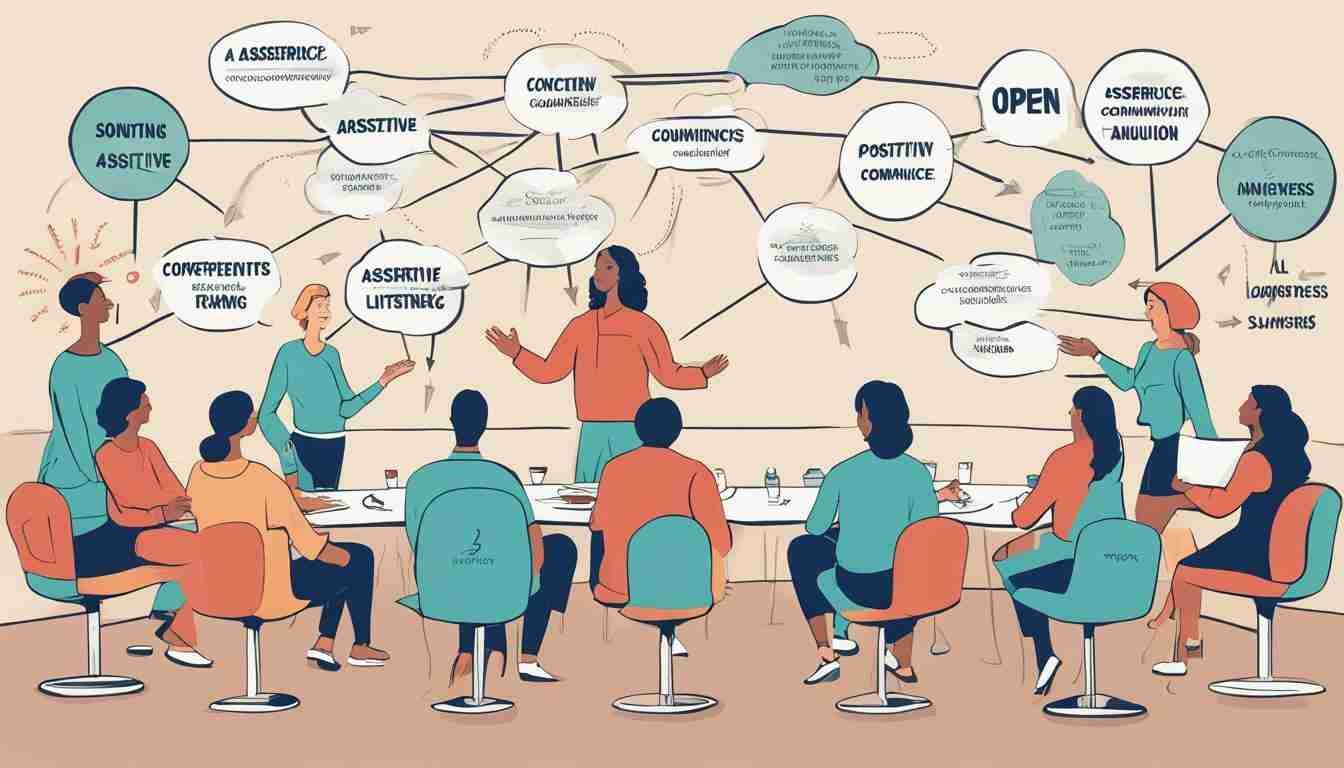Self-confidence is a critical component of personal growth and success, yet it can be challenging to develop and maintain. However, with the right techniques and strategies, you can build self-confidence, boost self-esteem, and improve your overall quality of life.
Whether you struggle with self-doubt in social situations or lack confidence in your abilities at work, self-confidence building can help you overcome these obstacles and unlock your full potential.
Key Takeaways:
- Self-confidence building is essential for personal growth and success.
- Effective strategies include visualization, positive affirmations, and goal-setting.
- Overcoming self-doubt and negative self-talk is crucial to building self-confidence.
- Building self-confidence in relationships and social situations can positively impact your overall quality of life.
Understanding Self-Confidence and Its Benefits
Self-confidence is a belief in oneself and one’s abilities. It is closely tied to self-esteem, which refers to the overall sense of self-worth. Building self-confidence can have a positive impact on various areas of life, including career, relationships, and personal growth.
Boosting self-esteem and improving self-confidence can lead to increased motivation, better decision making, and a willingness to take risks. It can also lead to better communication skills and the ability to handle challenging situations with ease.
Having self-confidence helps individuals to believe in themselves and their abilities. It empowers them to pursue their goals and aspirations, even in the face of obstacles or setbacks. With increased self-confidence, individuals become more resilient and adaptable to change, which can lead to greater personal and professional success.

Research has also shown that a lack of self-confidence can negatively impact mental health, leading to anxiety, depression, and a range of other psychological issues. By building self-confidence, individuals can improve their mental and emotional well-being.
Understanding the Connection Between Self-Confidence and Self-Esteem
Self-confidence and self-esteem are closely related, but they are not the same thing. Self-esteem refers to the overall sense of self-worth, while self-confidence is a belief in one’s abilities in specific situations.
Improving self-confidence can lead to increased self-esteem, as individuals become more confident in their abilities and feel better equipped to handle challenges. Conversely, low self-confidence can lead to a decrease in self-esteem, as individuals may begin to doubt their abilities and feel less capable.
It is important to work on building both self-confidence and self-esteem, as they work synergistically to promote overall well-being.
Effective Self-Confidence Building Strategies
Building self-confidence takes time and effort, but it is essential for personal growth and success. Here are some effective self-confidence exercises, tips, techniques, and strategies to help boost your self-esteem:
- Visualize success: Take a few minutes each day to visualize yourself achieving your goals and succeeding in your endeavors. See yourself as confident, capable, and self-assured.
- Practice positive affirmations: Repeat positive affirmations to yourself each day, such as “I am confident and capable” or “I trust in my abilities.” This practice can help reprogram negative self-talk into positive self-talk.
- Set achievable goals: Set small, achievable goals for yourself and celebrate your successes along the way. This can help build your confidence and give you a sense of accomplishment.
- Step out of your comfort zone: Challenge yourself to try new things and take on new experiences. This can help you grow and develop new skills, as well as build your confidence.
- Surround yourself with positivity: Spend time with people who uplift and support you, and make time for activities that bring you joy and fulfillment.
- Practice self-care: Take care of yourself both physically and mentally. Get enough rest, eat healthy foods, exercise regularly, and make time for relaxation and self-reflection.
- Focus on your strengths: Identify your strengths and focus on developing them further. This can help you feel more confident in your abilities and accomplishments.
Remember, building self-confidence is a journey, not a destination. Be patient with yourself, celebrate your successes, and don’t be afraid to ask for help when you need it. Practice these self-confidence exercises, tips, techniques, and strategies regularly, and you can start to see a positive change in your confidence and overall well-being.

Overcoming Self-Doubt and Negative Self-Talk
Self-doubt and negative self-talk are two of the most significant obstacles to building self-confidence. When we constantly tell ourselves that we’re not good enough or that we’ll fail, it becomes challenging to see our worth and potential.
To overcome self-doubt and negative self-talk, it’s essential to first become aware of the thoughts we’re having. Are they helpful or harmful? Are they based on facts or assumptions?
One effective strategy is to challenge negative thoughts with evidence. For example, if you’re telling yourself that you’re not good at public speaking and are bound to embarrass yourself, remind yourself of a time when you spoke confidently and received positive feedback.
Another strategy is to reframe negative thoughts into more positive and helpful ones. Instead of saying, “I can’t do this,” try saying, “I may not know how to do this yet, but I’m willing to learn and improve.”
Practicing mindfulness and self-compassion can also help overcome self-doubt and negative self-talk. By focusing on the present moment and treating ourselves with kindness and understanding, we can break free from negative thought patterns and build our self-confidence.

Remember, building self-confidence is a journey, and overcoming obstacles like self-doubt and negative self-talk takes time and effort. But with patience and persistence, we can unlock our full potential and lead a more fulfilling life.
Building Self-Confidence in Relationships and Social Situations
Self-confidence is not only critical for personal growth and success but is also essential in building healthy relationships and thriving socially. Confidence enables a person to communicate assertively and make a positive impression, leading to more significant connections and interactions.
One effective way to boost self-esteem in social settings is by facing fears and stepping out of one’s comfort zone. It can be as simple as initiating a conversation with a stranger or attending a social event alone. By doing so, a person can expand their social circle, build meaningful relationships, and increase their self-confidence.
Positive self-talk is also a powerful tool to build confidence when interacting with others. By replacing negative thoughts and self-doubt with encouraging and empowering affirmations, one can feel more in control and confident in social situations.
Another crucial aspect of building self-confidence in relationships is setting boundaries. People with strong self-confidence can express their needs and preferences clearly, leading to more authentic and fulfilling relationships. Practicing saying “no” and communicating personal boundaries can help build self-respect and improve self-esteem in social scenarios.
It is also essential to remember that building self-confidence takes time and effort. By practicing these techniques consistently and seeking support from friends, family, or a therapist, one can improve their self-confidence and enjoy more positive and meaningful relationships.

Building self-confidence in relationships and social situations is essential for personal growth and success. By stepping out of one’s comfort zone, engaging in positive self-talk, setting boundaries, and seeking support, one can improve their self-esteem and enjoy more fulfilling relationships.
Conclusion
Self-confidence building is a lifelong journey that has the power to unlock your potential and bring about personal and professional growth. It’s never too late to start building your self-confidence, and the techniques and strategies provided in this article are just the beginning.
Remember that building self-confidence takes time, effort, and a willingness to confront obstacles. But with determination and perseverance, you’ll be able to break through barriers and achieve your goals.
Start by implementing one or two self-confidence building techniques into your daily routine, and gradually build upon them as you progress. Keep in mind that setbacks are normal, and it’s important to acknowledge them as opportunities for growth rather than failures.
It’s time to take the first step towards unlocking your potential and building the confidence you need to succeed. Start your self-confidence building journey today.
FAQ
Q: What is self-confidence building?
A: Self-confidence building refers to a process of developing and strengthening one’s belief in their abilities, worth, and potential. It involves adopting positive attitudes, behaviors, and strategies to overcome self-doubt and improve overall self-esteem.
Q: Why is self-confidence building important?
A: Building self-confidence is crucial for personal growth and success. It empowers individuals to take on new challenges, overcome obstacles, and achieve their goals. It also enhances communication skills, fosters healthy relationships, and boosts overall happiness and well-being.
Q: How can I improve my self-confidence?
A: There are various effective strategies to build self-confidence, such as practicing self-care, setting realistic goals, celebrating achievements, challenging negative thoughts, utilizing positive affirmations, seeking support from others, and engaging in activities that align with your strengths and passions.
Q: How can I overcome self-doubt and negative self-talk?
A: Overcoming self-doubt and negative self-talk involves recognizing and challenging negative thoughts and beliefs, reframing them into positive and realistic ones, practicing self-compassion, surrounding yourself with positive influences, and seeking professional help if needed.
Q: How can I build self-confidence in relationships and social situations?
A: Building self-confidence in relationships and social situations can be achieved by practicing assertiveness, active listening, and effective communication skills. It is also important to cultivate a positive self-image, embrace vulnerability, and engage in social activities that align with your interests and values.





